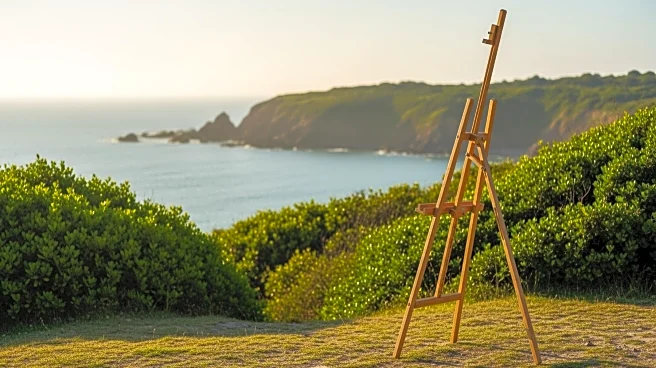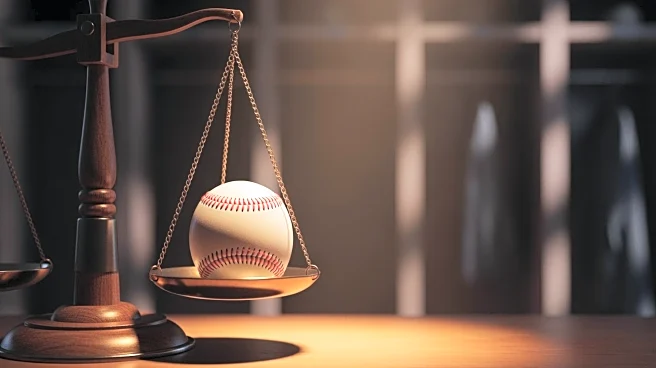What's Happening?
The Robert Rauschenberg Foundation is planning to sell 22 acres of the artist's Captiva Island property, which has been home to a residency program for artists and scholars since 2012. The Captiva Island Fire
District and a Captiva investor represented by Robert Suárez are offering to purchase parts of the property to preserve them in their undeveloped state. Both parties have agreed not to seek rezoning of the property. The sale comes amid concerns from locals, led by the Captiva Community Panel, who wish to preserve the land as public space or a nature refuge. The foundation cites challenging environmental conditions and rising maintenance costs as reasons for the sale.
Why It's Important?
The sale of the Captiva Island property is significant as it highlights the ongoing tension between development and conservation efforts in environmentally sensitive areas. The property has been a cultural hub, hosting over 500 creatives through the Rauschenberg Residency program. Its sale could impact the local community's access to public spaces and natural refuges, as well as the continuation of the residency program. The decision reflects broader challenges faced by organizations in maintaining properties amid climate risks and financial constraints. The outcome of this sale could set a precedent for how similar properties are managed in the future.
What's Next?
The Captiva Island Fire District has approved a resolution to conduct due diligence on the potential acquisition of the property. They aim to develop facilities that can withstand severe weather and provide emergency services. The local community is encouraged to appeal to the Rauschenberg Foundation to sell the property to the Captiva investor in conjunction with the Fire District. The final cohort of the residency program will conclude in August 2026, marking the end of an era for the cultural site. The foundation plans to continue supporting artists through its New York City residency.
Beyond the Headlines
The sale of the Captiva Island property raises ethical questions about the preservation of cultural and environmental heritage. The property's historical significance as a creative retreat and its environmental value as a natural refuge are at stake. The foundation's decision to sell reflects the broader issue of balancing financial sustainability with cultural and environmental stewardship. The potential development of the land could alter the island's ecological landscape and affect evacuation plans during climate emergencies.









